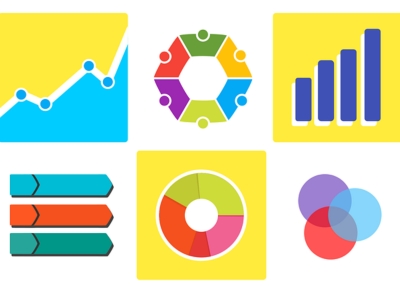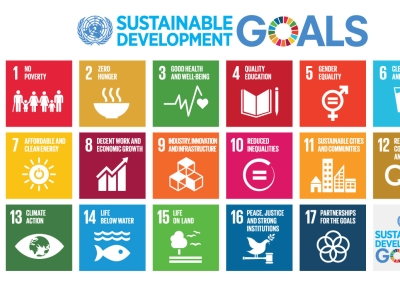Global Learning
Projects Designed to Address the UN Sustainable Development Goals

Global competence is multi-faceted and includes cognitive development, social emotional skills, and civic learning. It has four overlapping dimensions that all students will need to develop in order to interact successfully with people face-to-face as well as virtually in their communities and in other regions and nations. Skills in these dimensions are also needed to examine and work toward the resolution of issues with local and global significance. Globally competent students investigate the world, recognize perspectives, communicate ideas, and take action. To learn more about global competence, click here.
Opportunities for global learning are all around us, even when students are learning from home. In this section, we will provide resources and materials to help you organize and plan global learning opportunities virtually and at home. The intent is to get students thinking about the world differently and empowering them to take action on issues of global significance.
The Sustainable Development Goals range from climate, water, and food crises to poverty, conflict, and inequality – which all are in need of solutions that the private sector can deliver, representing a large and growing market for business innovation. Global learning provides the perfect framework for students to explore these goals and build the necessary skills to process and evaluate information, to make informed judgments, and to become lifelong learners in order to keep up with the accelerating pace of information flow and technological change.
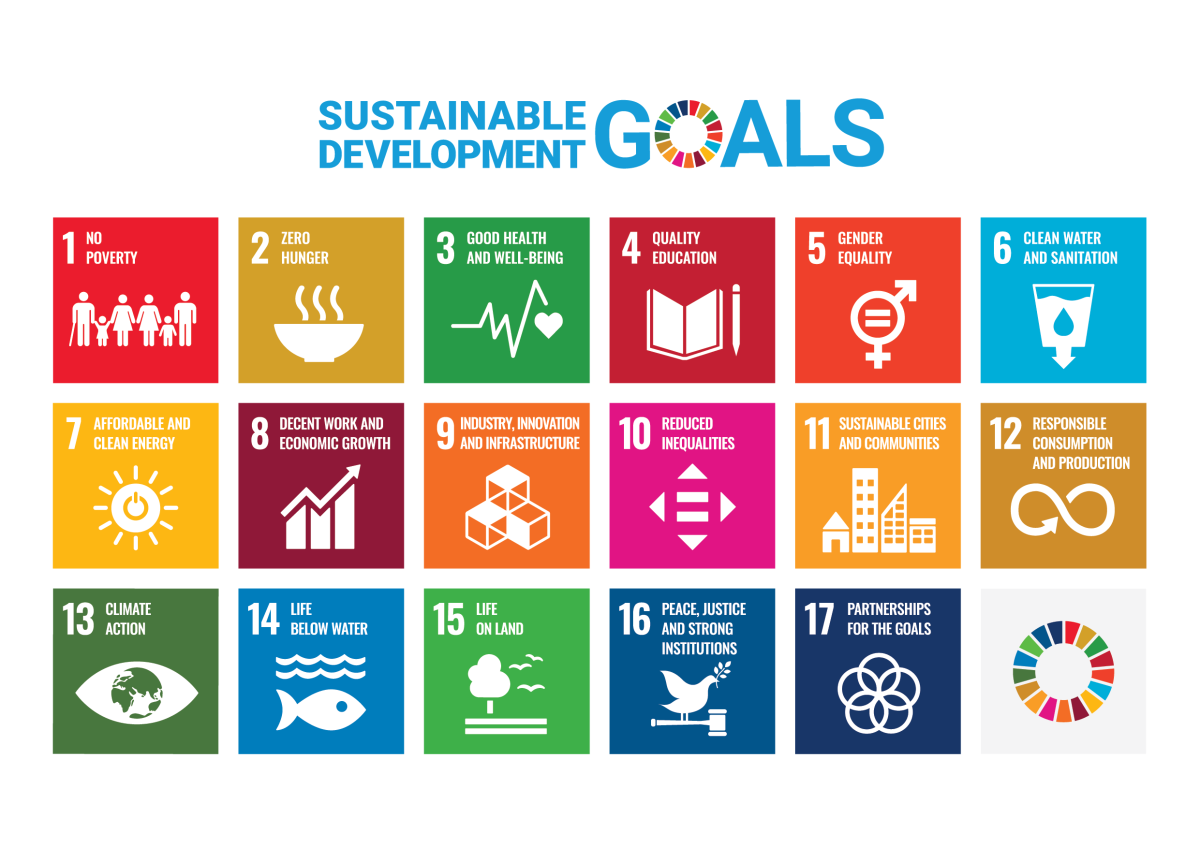
The 5 Key Principles to Successful Virtual Learning Projects
Virtual learning is not about students staring at their devices for long periods of time. In fact, the most successful virtual learning opportunities happen away from the screen. This also holds true when designing global learning projects. It is just as critical for students to have time to work individually as it is for them to work together online. Virtual learning should have a purposeful mix of online and offline activities that are tailored to each objective and learning outcome. Here are our tips to consider when designing virtual learning projects.
- Offer Plenty of Options: Make sure that students have different ways to show their learning. Some students may prefer writing, while others are more comfortable with speaking and recording themselves on video. Offering plenty of options will help optimize choice and engagement.
- Balance On-screen and Off-Screen Activities: Giving students opportunities to work independently to research, think, and record findings will help them be more confident when they come together in peer groups. Balancing the two is critical.
- Provide Scaffolding: Team building, graphic organizers, templates and rubrics will all help students know exactly what is expected, thus ensuring successful outcomes.
- But First, Equity: Critical to any virtual experience is making sure that all students have access to digital resources and learning materials. Make sure to do a full assessment of what students have access to before you design your virtual learning experiences.
- Check-in, A Lot: It might seem time-consuming to meet with multiple students virtually on a regular basis, but trust us, it’s worth it! Being at home away from school can be isolating. Make sure that students know you are there for them. Your care and understanding will go a long way.
Now that we have the basics down, let’s get started!
When designing virtual learning projects, it’s important to have a road map to capture your goals and organize your plan. Our SAGE Framework will provide you with the steps needed get started.
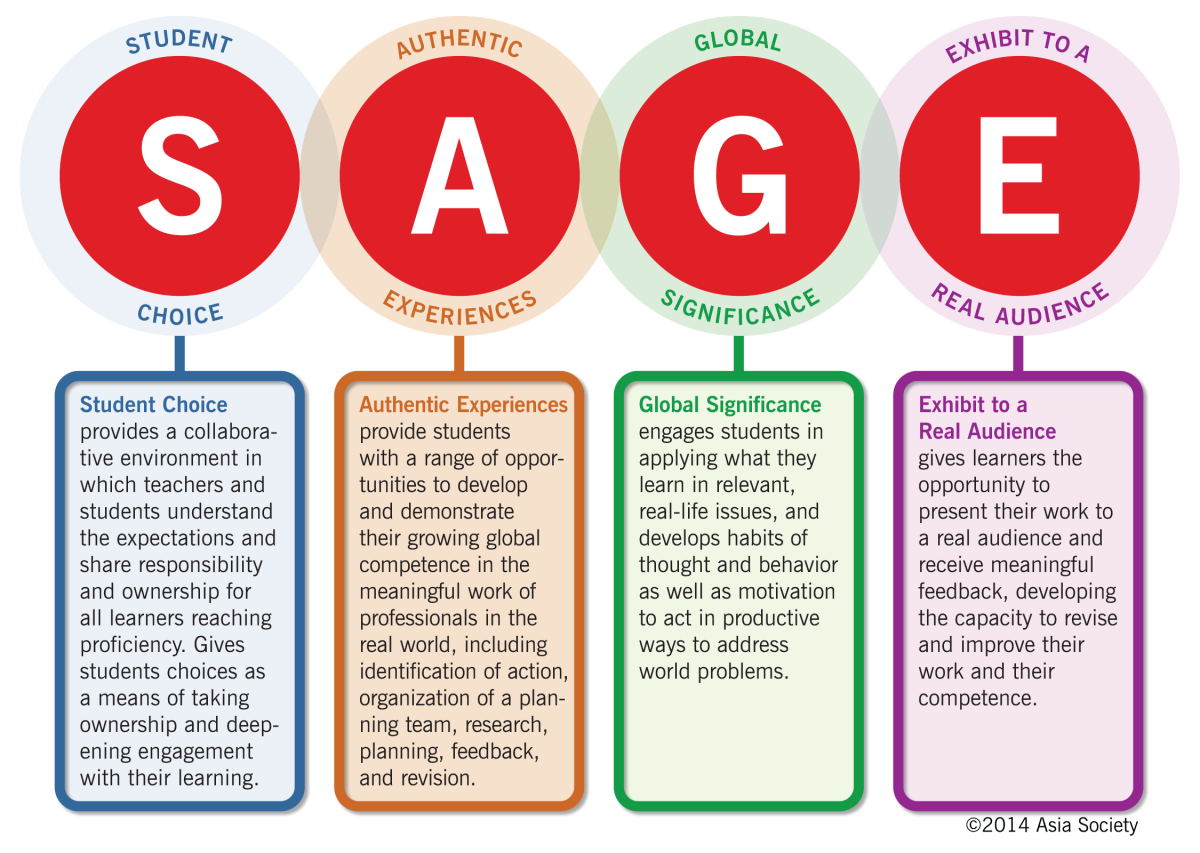
Here is our SAGE Framework Planning Guide. This document is designed to capture ideas and to ensure that SAGE is central in your planning.
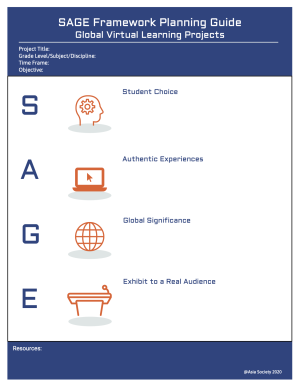
These projects are designed for students in middle and high school. Be sure to check in regularly for more project ideas and examples! Coming soon, Digital Scavenger Hunt: Investigations in Access to Clean Water.



